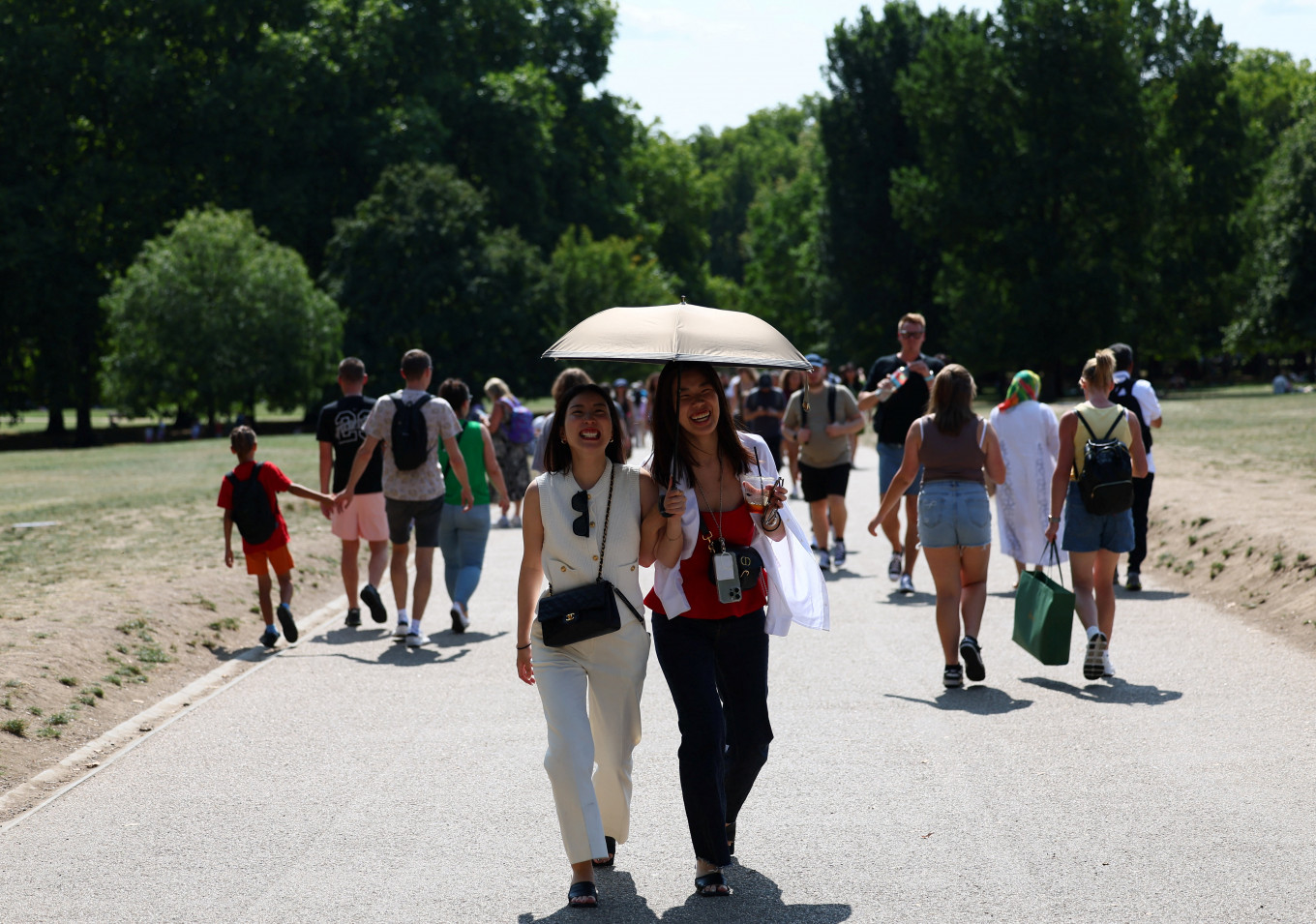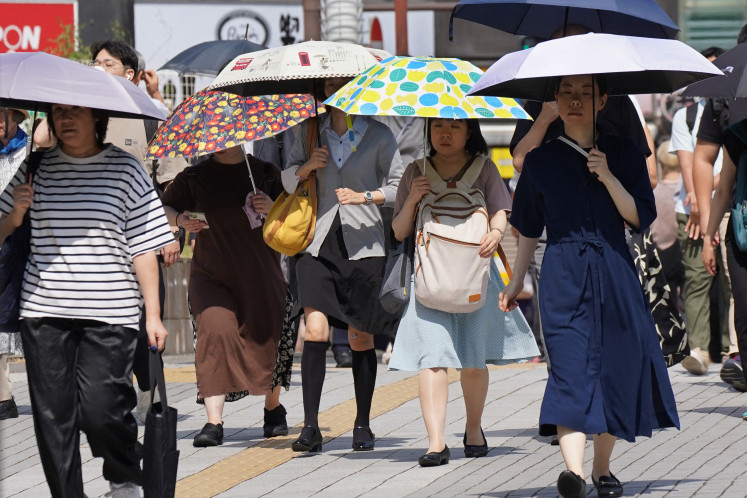Popular Reads
Top Results
Can't find what you're looking for?
View all search resultsPopular Reads
Top Results
Can't find what you're looking for?
View all search resultsUK, Japan, South Korea endure hottest summer on record
Change text size
Gift Premium Articles
to Anyone
T
he UK, Japan and South Korea sweltered this year through the hottest summers since each country began keeping records, their weather agencies said Monday.
Temperatures the world over have soared in recent years as human-induced climate change creates ever more erratic weather patterns.
The UK's provisional mean June-August temperature was 16.1C, which was 1.51C above the long-term average and surpassed all years since 1884, including the previous record, set in 2018, the Met Office said.
The British summer saw four heatwaves, below-average rainfall and sustained sunshine, and followed the nation's warmest spring in more than a century.
Japan's average temperature spike was even starker over the same three summer months, at 2.36C above "the standard value", making it the hottest since records began in 1898, the Japan Meteorological Agency (JMA) said.
It was the third consecutive summer of record high temperatures, the agency noted.
This year's scorching heat left some 84,521 people hospitalized nationwide from May 1 to August 24, according to Japan's Fire and Disaster Management Agency.
In South Korea, the average June-August temperature was 25.7C, "the highest since data collection began in 1973", the Korea Meteorological Administration said in a press release.
The previous record over the same period was 25.6C, set just last year.
'Very hot'
Britain -- known for its damp and grey climate -- struggled through the record hot summer, which poses a host of challenges for a country ill-equipped for such conditions.
Homes in the UK are designed to keep the heat in during the winter, and air conditioners are rare in homes and public places, such as much of London's sprawling underground "Tube" metro system.
"It's hard to spend a hot day [here]," Ruidi Luan, a 26-year-old student from China, told AFP in London during the August heatwave.
"There's no air conditioner in our dorm. It is sometimes very hot, and especially in public transport."
Drought was declared in five out of 14 regions in England, while the Environment Agency classed the water shortfall as "nationally significant", as farmers struggle with stunted harvests.
In Tokyo, Miyu Fujita, a 22-year-old businesswoman, said she had mostly socialized indoors this summer to escape the oppressive temperatures.
"When I was a child, summer was the time to go outside and play," she told AFP. "Can kids play outside now? I think it's impossible."
People with umbrellas walk in the scorching sun in Tokyo on September 1, 2025. (AFP/Kazuhiro Nogi)Japan's beloved cherry trees are blooming earlier due to the warmer climate, or sometimes not fully blossoming because autumns and winters are not cold enough to trigger flowering, experts say.
The famous snow cap of Mount Fuji was absent for the longest recorded period last year, not appearing until early November, compared with the average of early October.
National disaster
South Korea is meanwhile grappling with a prolonged drought that has hit the eastern coastal city of Gangneung.
A state of national disaster has been declared in the city of 200,000 people, with water levels at the Obong reservoir, the city's main source of piped water, falling below 15 percent.
The dry spell has forced authorities to implement water restrictions, including shutting off 75 percent of household meters.
Kim Hae-dong, professor of meteorological studies at Keimyung University, told AFP the hot weather streak was linked to "the weakening of Arctic cold air due to global warming".
"Because it is expected to continue weakening with global warming in place, we forecast similar weather patterns to repeat next year," he said.
Heatwaves are becoming more intense and frequent worldwide because of human-caused climate change, scientists say.
The UK's provisional record this year means all of its five warmest summers have taken place this century.
The Met Office noted "a summer as hot or hotter than 2025 is now 70 times more likely than it would be in a 'natural' climate with no human caused greenhouse gas emissions".
But the speed of temperature increases across the world is not uniform.
Of the continents, Europe has seen the fastest warming per decade since 1990, followed closely by Asia, according to global data from the US National Oceanic and Atmospheric Administration.
The United Nations warned last month that rising global temperatures are having an ever-worsening impact on the health of workers, and also hitting productivity, which they say dropped by two to three percent for every degree above 20C.











